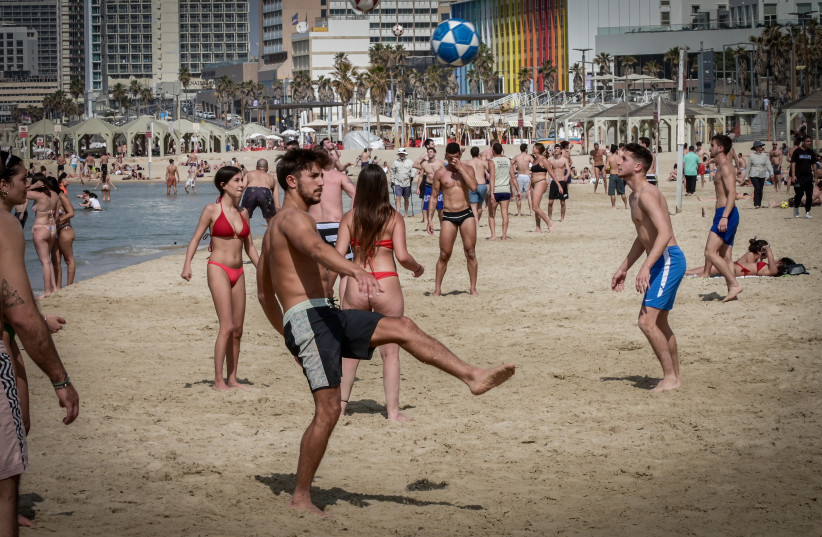The current heat wave engulfing the State of Israel is still going strong; extreme heat is expected to continue for a few more days.
On Monday, the extreme heat is expected to reach its peak, with temperatures projected to reach 45C (113F) at the Dead Sea.
On Tuesday, temperatures will drop noticeably although it will still be quite hot and dry.
How to stay safe during extreme heat
In light of the heatwave, the Health Ministry called on the general public, and especially the elderly population and patients with chronic diseases, to be cautious and avoid exposure to the heat and the sun as much as possible, to avoid unnecessary physical exertion, and to make sure to drink water.
The ministry noted that there is an increased risk of heatstroke, especially among the elderly, infants, toddlers, patients with cardiovascular diseases, obese people, patients with chronic diseases, patients on certain medications, and people suffering from acute illness or dehydration.

Signs of heatstroke include a body temperature above 103F (39.5C), red, hot, and dry skin, rapid pulse, severe headache, palpitations, dizziness, nausea, confusion, and loss of consciousness. Anyone suffering from those signs should call emergency services and receive treatment immediately.
Until help arrives, the patient should stay in a cool and shady area and try and cool their body. Patients suffering from heatstroke should not drink and will instead receive fluids through an IV.
